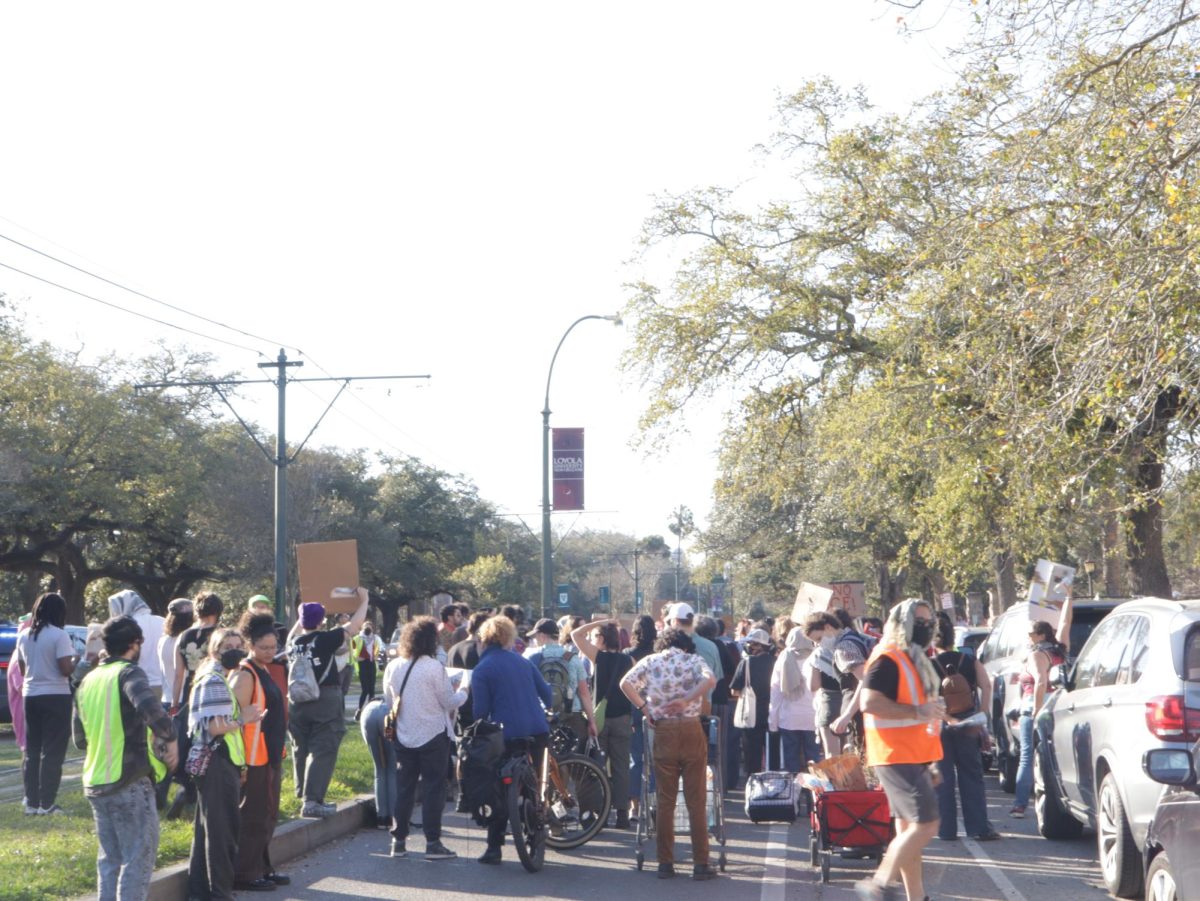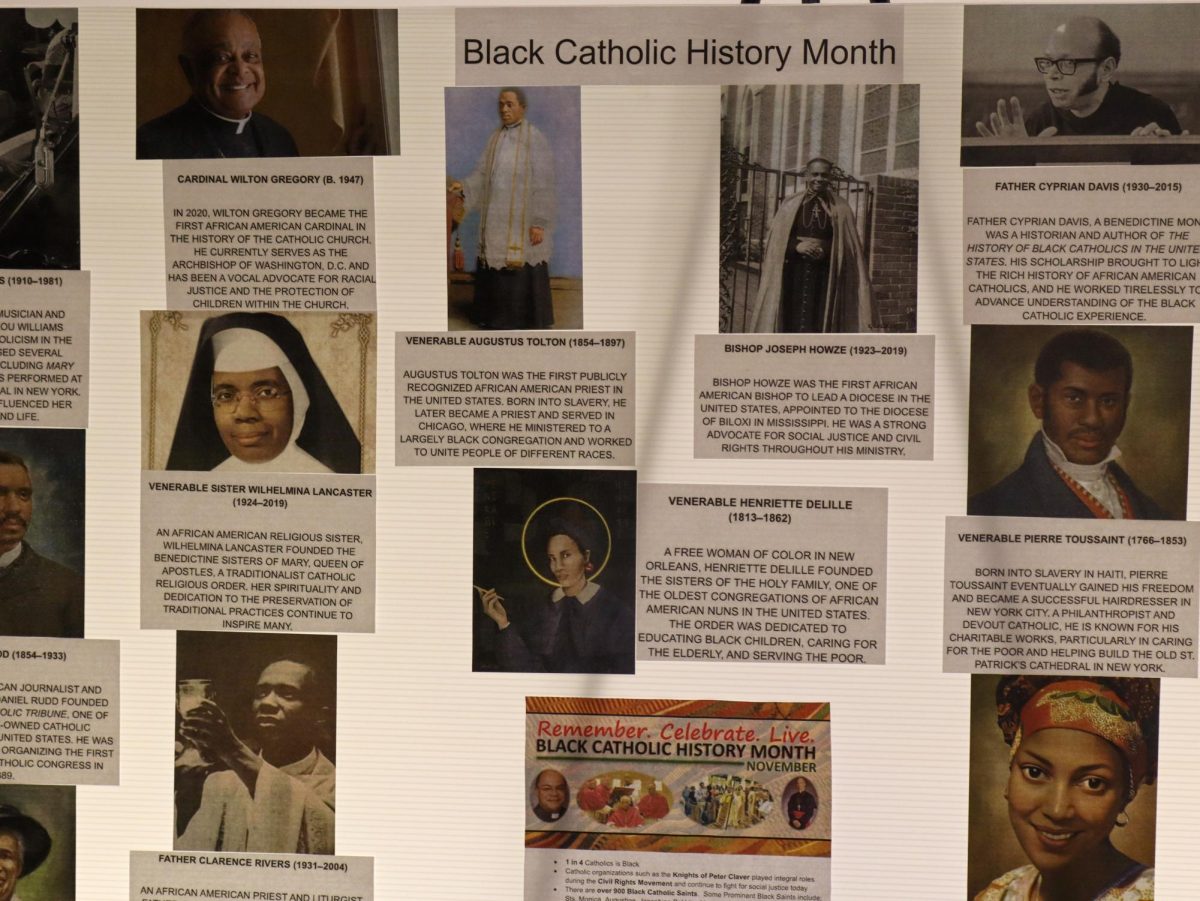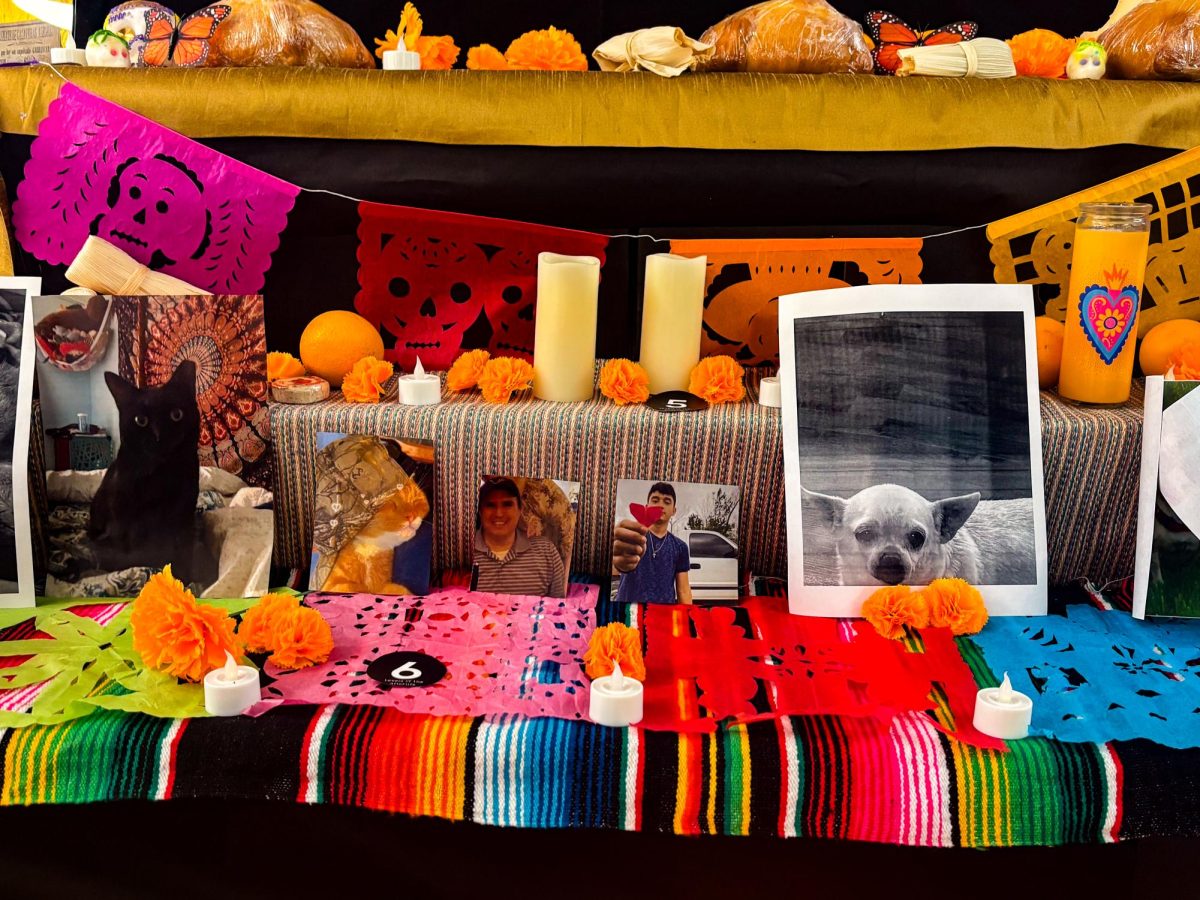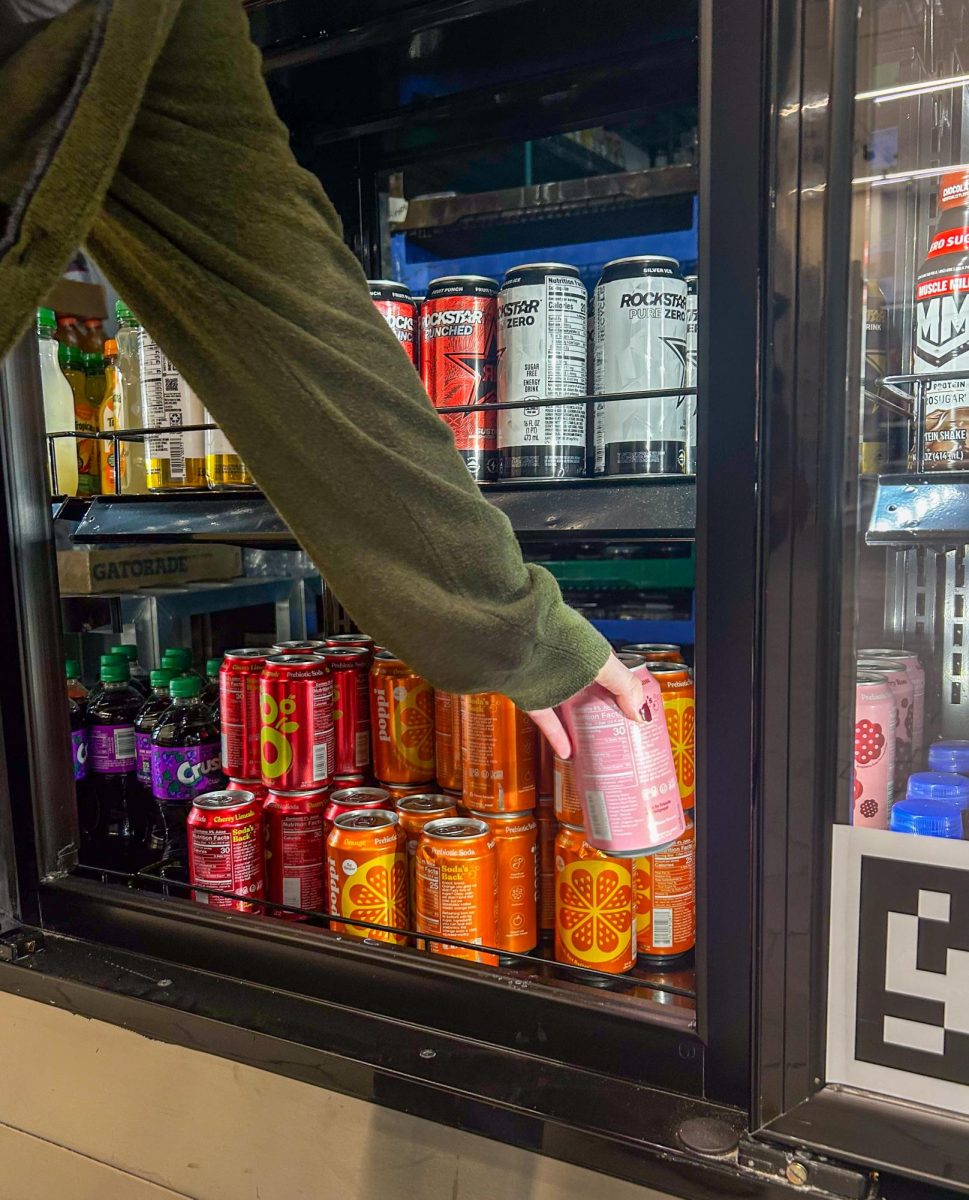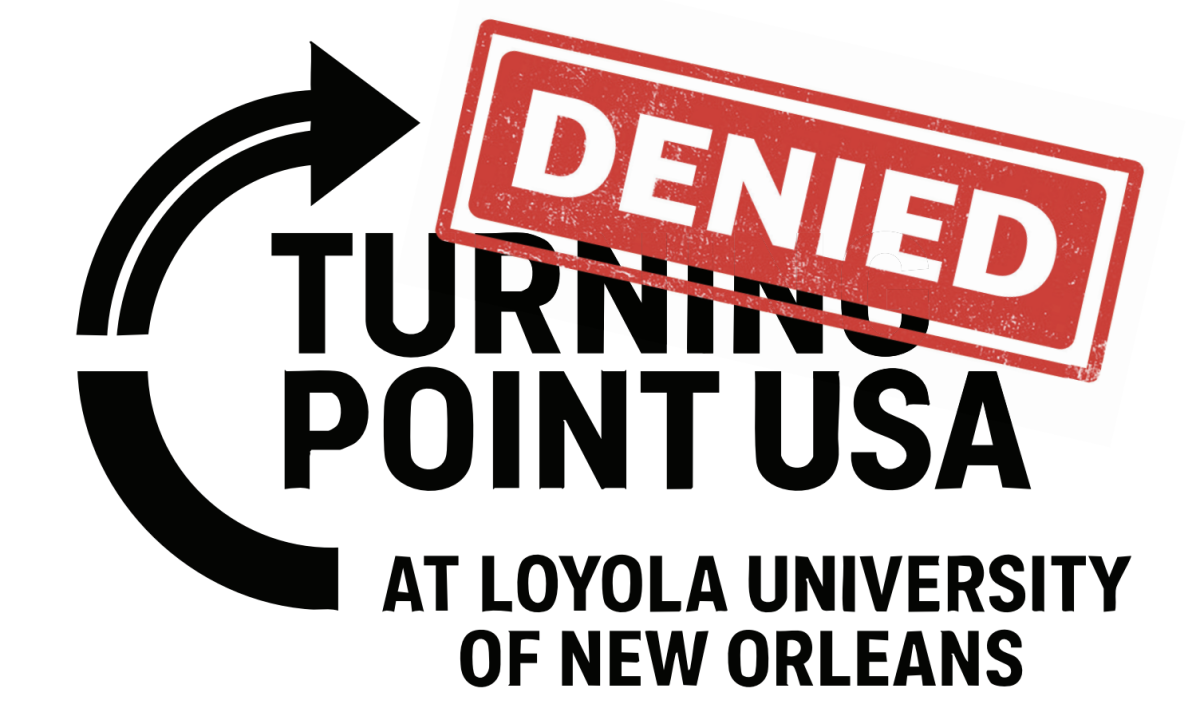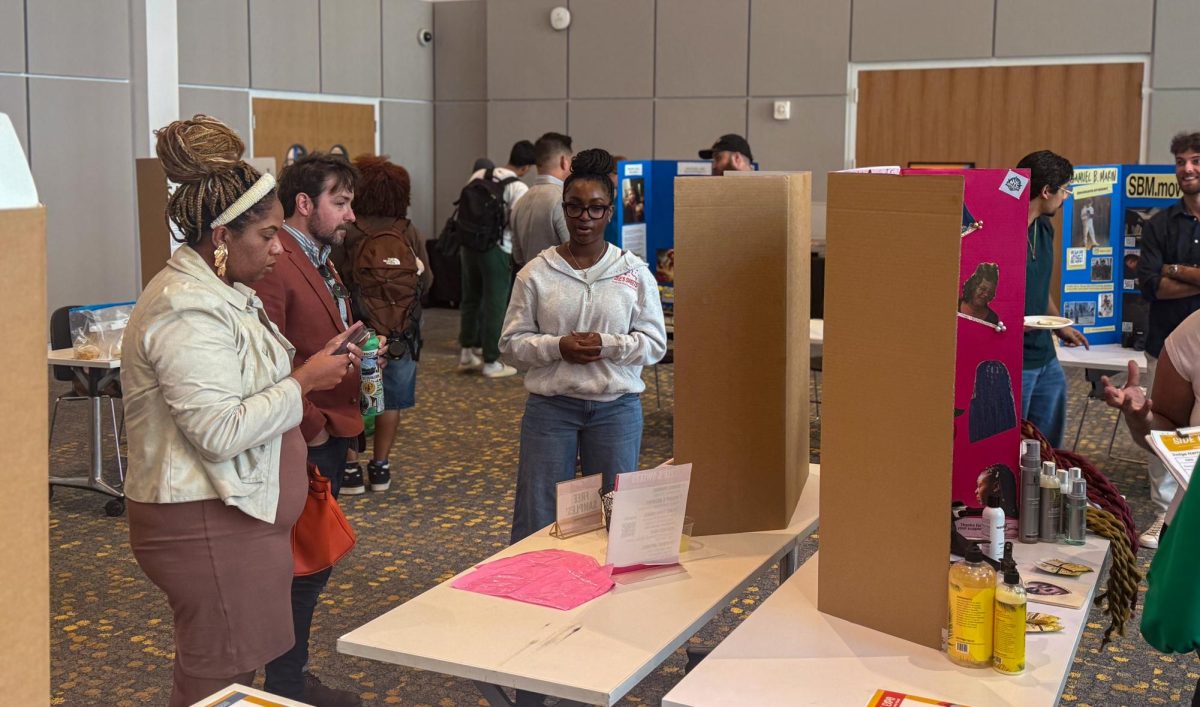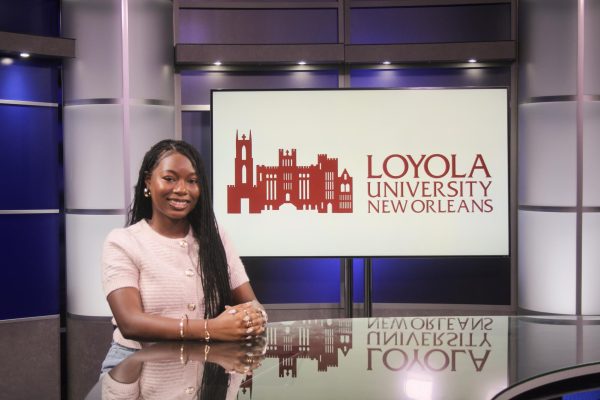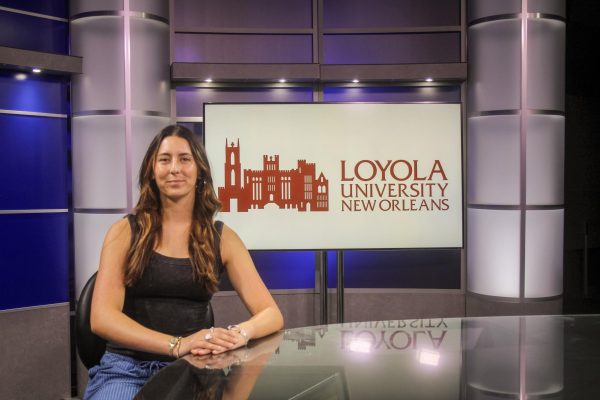As Loyola University students grapple with new federal policies that could threaten immigrant students’ rights, many fear that exercising free speech, especially through protest, could come at a devastating cost.
Several students expressed concerns about recent policies and executive orders that could impact immigrant students’ rights, particularly regarding free speech and participation in protests.
Students worry that universities may have to choose between upholding their values and maintaining federal funding, with some fearing that green card holders could face having their legal status revoked for protesting and that they could find themselves in a situation similar to Columbia University student Mahmoud Khalil, a lawful permanent resident, under a rarely used immigration law provision. Khalil is currently detained in Jena, Louisiana.
Trump’s executive orders prohibiting antisemitism have been applied to Khalil’s case, with officials arguing that protesters supporting Hamas should lose their right to stay in the U.S.
The order established a task force to combat anti semitism, led by the Department of Justice, to address anti semitic harassment, especially in schools and on college campuses. It calls for the cancellation of visas for foreign students protesters.
In response to the detention of Columbia University student activist Mahmoud Khalil, student activists organized a protest near the campuses of Tulane University and Loyola University, demanding Khalil’s release, highlighting concerns over free speech and immigrants’ rights.
U.S. Representative Troy A. Carter said that Khalil’s arrest coincided with actions by the Department of Education targeting 60 institutions, including Tulane University, for their involvement in pro-Palestinian activities.

This has put pressure on universities to take action against immigrant students involved in protests, specifically protests about the Israeli-Palestinian war. Some of these policies are to further crackdown on student activism, where federal funding has been leveraged to control campus speech.
Loyola University, a Jesuit institution, has traditionally upheld values of social justice and inclusion. However, like many universities, it faces challenges in navigating federal policies while maintaining its commitment to student rights and diversity.
Criminology freshman Axel Aguilar said he felt sad about the situation and believes these policies and executive orders put universities in a difficult position—forcing them to choose between their morals or risk being defunded.
He said this could have a chilling effect on free speech, not just on college campuses but across the country.
“I think students are going to be more cautious and way more wary of what they’re saying because it’s an attack on free speech, basically, in terms of immigration status and citizenship status,” Aguilar said. “I know other students are more reluctant to go to protests because they’re afraid of what the consequences could be.”
Aguilar said he doesn’t believe green card holders should be at risk of losing their status for participating in protests, regardless of the protest’s focus.
“I believe if you are able to be in this country, then you should have all the rights available to everybody else in this country,” Aguilar said. “Including free speech.” Aguilar also noted that he believes the order is being used as a scare tactic for the Trump administration.
“I think it is 100% targeting specific groups unfairly, and it puts others at an advantage compared to minority groups,” he said. “I think Loyola should continue sharing a vision where all students are safe and able to express themselves, but I don’t think they should be at risk of defunding either, so I think they should be careful.”
Aguilar said universities should focus on being open with students and guiding them in a safe direction while also trying to comply with possible federal funding requirements.
“I think continuing to tell students what is allowed and what isn’t allowed is the best way to go about this, so that students aren’t lost in terms of what they can and can’t do, and the university doesn’t have to double down on everything,” Aguilar said.
Nursing freshman Angelina Nguyen said she feels that universities revoking green cards from immigrants who protest is wrong and inhumane.
“Why are our fellow students at risk of losing, like, their whole life, their future, everything they have here over stating their opinion?” Nguyen said. “Students can’t say what they want to say without feeling like something might happen to them, like their own words could bring danger to themselves.”
Nguyen said she felt uncertain about what the future holds and whether a solution exists.
“If I’m honest, there might not be a way, but I think the safety of students should come first. At the end of the day, we’re all people—money doesn’t matter,” Nguyen said. “Money will come back, but lives don’t.”
Marine biology freshman Kaya Biner’ Reynolds said she believes students will not feel comfortable protesting as a result of the order, and there have already been consequences for those protesting on campus.
“I think students that have green cards have worked towards that, and to just get it taken away for protesting—exercising a right that they have—is unconstitutional and inhumane,” Reynolds said.
Reynolds said she thinks Loyola should take a stand on this issue, but that the current political and economic climate makes it difficult.
“I don’t know if there’s a whole lot they can do, but I think what they can do is make students aware of their rights and emphasize what they can and cannot do,” she said.
International biochemistry senior Carlos Villalobos Galindo said he believes the government shouldn’t have the right to revoke green cards from students who protest the conflict.
“I understand why they’re doing it, frankly, they’re just trying to save their funding,” Villalobos Galindo said.
He said that although he doesn’t agree with the decision, he understands that universities are in a difficult position.
“The Trump administration is cutting funding to them, and that’s why they have to do these things, but I do not agree with it,” he said. “From an ethical standpoint, people should be able to protest.”
Villalobos Galindo said his stance on protesting has changed as an international student living in the U.S.
“What has been happening to people that protest here—they are at risk of having their green cards revoked. We saw this at Columbia University,” he said. “We’re seeing this at different institutions. I think the University of Pennsylvania got hit pretty hard this week. So, you’re seeing these trends.”
As a student planning to pursue graduate school next fall, he said he is worried about the long-term effects of these policies.
“As an international student, I’m afraid of speaking up for the things I believe in because of the consequences I might face,” Galindo said. “I cannot get deported right now. I recently got accepted to a chemistry program at the University of Chicago, but I’m worried because I don’t want to put myself at risk and limit my possibilities of having a better life just because the government is attacking people with different viewpoints.”
He said the orders have affected his approach to the issue of protesting and what he’s willing to put at risk.
“As a person who has worked really hard to get to where I’m at, of course I’m not going to protest, and of course I’m going to save my thoughts on these issues—just to secure my position in the workplace and secure myself financially,” Villalobos Galindo said. “It’s definitely affecting how free speech works.”
He said he doesn’t think it’s right that universities may be forced to make these decisions to maintain their funding.
“I think Loyola is not as affected as other major institutions, but at the end of the day, they are getting affected,” he said. “For universities, it’s really hard to comply with the federal government right now while also supporting students who are opposing federal policies.”
Villalobos Galindo said he believes Loyola is doing a good job of following federal and state laws while also trying to be transparent with students.
“We got an email that explained if ICE does come and talk to you, to refer them to the LUPD department,” he said. “So, I think that’s good. I think they’re handling that really well.”
He also said universities should be prepared to support students if these policies are enforced.
“I believe that the institution, at the end of the day, should follow its Jesuit values,” Villalobos Galindo said. “I think that in the next four years under this administration, Loyola is really going to be put to the test.”
Public health sophomore Chi Chi Umeh said she is trying to be patient and stay informed about Loyola’s responses.
“I think institutions have a duty to protect students in any way possible,” Umeh said. “Like, the letter that was just put out about the task force—it was very safe.” Umeh also said she doesn’t like the implications of the executive order as a regulating tool.
“I think trying to punish anyone for the freedom of speech, especially politically, is not okay,” she said. “The fact that you even have to worry about that says a lot about our country, our institutions, and who we are as a nation.”
She said she hoped the university would immediately condemn these policies or take action.
“I would hope that we would not comply with it at all—kind of say, at the end of the day, this is not okay. Y’all should not be doing this,” she said. “Students have a right to be here, so just complying, to me, would feel like you don’t care. You’re providing them with this education, but at the end of the day, you’re saying we don’t care enough about you to not comply.”
Umeh said remaining silent is a form of compliance.
“I think that silence says so much, you know?”
She said these issues are not new but have become more blatant and discriminatory.
“Nothing is new with this administration or this crackdown on education,” Umeh said. “This is the one of the first things America promises, but yet, they are trying to take it away. It feels like they’re trying to erase all the work that immigrants have given to this country—like, you forget who this country is built on.”
AP contributed to this story.


